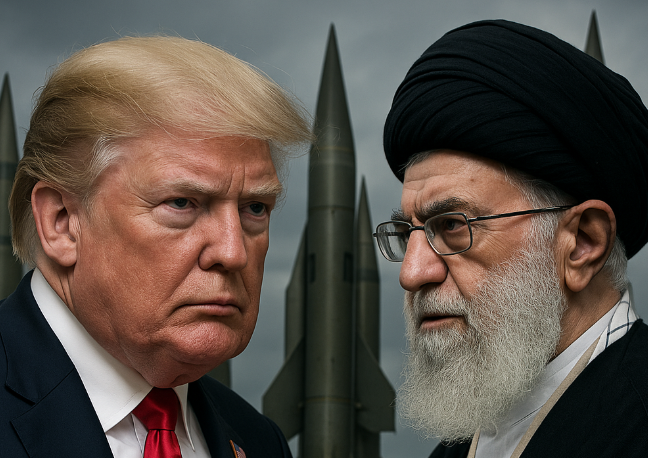UN Security Council Emergency Meeting After US Strikes on Iran:The US has launched airstrikes on Iran’s key nuclear sites — Fordow, Natanz, and Isfahan — triggering global diplomatic tensions. This article explains the detailed discussions at the United Nations Security Council emergency meeting, covering reactions from the US, Iran, Israel, China, Russia, and Pakistan. The future of Middle East stability hangs in balance as global powers take positions.
UN Security Council Emergency Meeting After US Strikes on Iran
In the night between June 21st and 22nd, the United States finally executed an attack that had been speculated for days. The US military struck three of Iran’s key nuclear sites — Fordow, Natanz, and Isfahan — bringing a dangerous escalation to the already tense situation in the Middle East. This strike raised immediate global concerns about what Iran’s next move would be. Would the conflict de-escalate, or would it spiral into a broader regional war?
Would US military bases within Iran’s missile range become targets? More significantly, would any nations come forward in support of Iran now that the US has openly backed Israel? The role of major powers like China and Russia, as well as the United Nations Security Council (UNSC), came under immediate global scrutiny.
Following the US strikes, an emergency session of the UNSC was convened. UN Secretary-General António Guterres addressed the council, calling the American airstrikes a “dangerous turn” and urging all parties to prioritize diplomacy to prevent further escalation.
He emphasized that negotiations over Iran’s nuclear program must resume immediately and decisively. Guterres stressed that all measures must be taken to protect civilian lives and avoid the dangerous cycle of retaliation.
Iran’s ambassador to the UN, Amir Saeed Iravani, delivered a strongly worded statement accusing the US and Israel of deliberately sabotaging diplomatic efforts. He rejected all American accusations as baseless and argued that the Nuclear Non-Proliferation Treaty (NPT) was being politicized and misused as a tool of aggression against Iran.
According to Iravani, instead of guaranteeing the peaceful rights of nations to develop nuclear energy, the NPT was now being exploited to threaten Iran’s sovereign interests. He reiterated Iran’s repeated warnings to Washington not to get entangled in actions that violate international law, asserting Iran’s right to self-defense under international law. However, he left open the nature, timing, and severity of Iran’s response, stating that it would be determined by military leaders.
Israel’s representative at the UN, Danny Danon, voiced full support for the American military action, calling it the “last line of defense” after all diplomatic efforts had failed. Danon accused Iran of using negotiations merely as a stalling tactic to continue enriching uranium and developing missiles.
The US Ambassador to the UN, Thomas-Greenfield, justified the strikes, declaring that Washington had no choice but to take decisive action after Iran repeatedly concealed its nuclear advancements and undermined recent negotiations.
She stated that Iran must never be allowed to possess nuclear weapons and urged Tehran to refrain from retaliatory action, warning that any attack on American interests would face a devastating response, a sentiment echoed by President Trump himself. Trump made it clear that any direct or indirect attack by Iran on American bases or interests would invite a catastrophic response.
The meeting also witnessed strong condemnations from China and Russia. China’s ambassador, Fu Cong, firmly denounced the US strikes, calling them violations of both international law and the UN Charter. He stressed that the targeted Iranian facilities were under International Atomic Energy Agency (IAEA) safeguards, and the attack severely undermined the credibility of the NPT. Fu Cong further pointed out that while Iran suffered physical damage, the US had damaged its own credibility as a neutral party in international diplomacy.
Russia’s ambassador, Vassily Nebenzia, referenced former US Secretary of State Colin Powell’s infamous 2003 UNSC speech, where Powell had falsely claimed Iraq possessed weapons of mass destruction. Nebenzia warned that once again, the world was being asked to believe the US narrative as a justification for new suffering in the Middle East. According to him, history had clearly shown that the US had learned nothing from past mistakes.
Iran’s Foreign Minister Seyed Abbas Araghchi also weighed in on social media platform X, criticizing the abrupt collapse of diplomatic talks. He revealed that Iran was in discussions with the US just a week ago when Israel’s actions derailed diplomacy. Further talks were underway with the E3 group (UK, France, Germany) this week when the US attack effectively ended those negotiations. He questioned how Iran could return to talks that it had never abandoned in the first place.
Meanwhile, Russia, China, and Pakistan jointly introduced a draft resolution calling for an immediate and unconditional ceasefire in the Middle East. According to Reuters, it remains unclear when the UNSC will vote on this resolution.
For the resolution to pass, at least nine affirmative votes are required, and none of the five permanent members (US, UK, France, Russia, China) must exercise a veto. The sponsors requested all council members to submit their responses by Monday evening.
As the world watches the rapidly unfolding developments, uncertainty continues to loom over the future of the Middle East. Tensions remain high as global powers take sides, and all eyes are now on Iran’s possible response to this dangerous escalation. We will continue to closely follow and report on every update surrounding the US, Iran, and Israel conflict.

